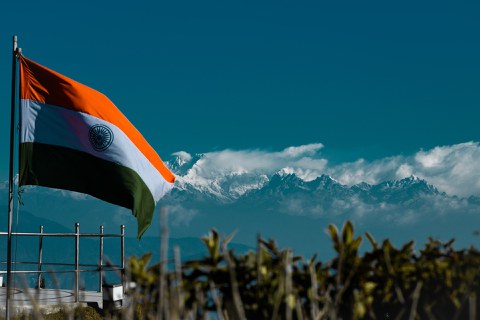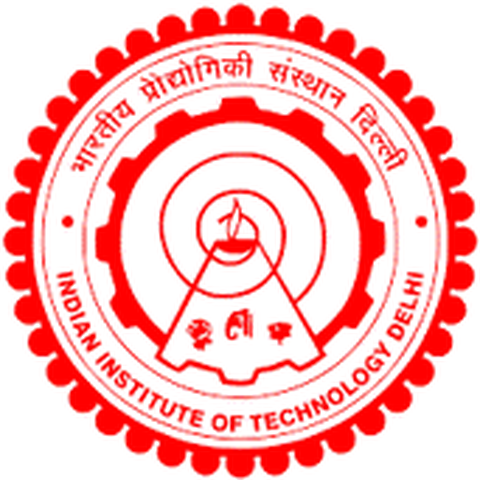India
India and Germany have been working closely together for decades. With the national education offensive in India from 2018, far-reaching university reforms were implemented to improve the quality of research and teaching and extensive funding programmes were launched to internationalize universities. As a result, the partnership between the two countries has intensified considerably, particularly in the areas of education and research. Specifically, this cooperation takes place on three levels:
- Exchange of students and academics,
- bilateral funding of research projects and innovation partnerships,
- Networking between German and Indian scientists through workshops, conferences or specialist delegations to promote joint research projects
TU Dresden sees India with its growing education market (second largest group of incoming students) as an excellent field of action in its internationalization strategy and has therefore opened a liaison office in Chennai on behalf of the Free State of Saxony. The aim of the cooperation is to support sustainable transformation processes with the country's technologically strong sector in accordance with the international Sustainable Development Goals (SDGs) and to promote technology transfer on a global scale.
In addition, TUD strives to advance technology transfer on a global scale. Therefore, the focus of the activities with India is on collaboration in line with TUD’s profile and potential areas with a significant transfer relevance in order to increase the impact of TUD in business and society. This includes active networking in the Indo-German scientific community as well as expanding joint research projects and new collaborations in profile and potential areas, especially with the Indian Institutes of Technology (IIT).
The university cooperation with the IIT Madras is particularly advanced and TU Dresden is now planning to establish a joint transCampus. The main focus of this partnership is on ecological sustainability, biomedicine, microelectronics and AI research as well as other SDG-related topics.
In addition, there are many links with other Indian partners in research and teaching:
- University cooperation with IIT Roorkee - particularly active with the School of Engineering Sciences
- Departmental cooperation in engineering sciences with IIT Indore and IIT Dhanbad
- Research cooperation with IIT Kanpur in transportation sciences and mathematics
- Structured student exchange with IIT Madras, IIT Mandi, University of Hyderabad (humanities and social sciences), Vellore Institute of Technology, among others
- DAAD scholarship program KOSPIE (Combined Study and Internship Program for Engineers from Developing Countries) for students of all IITs
- Membership in the Indian-Europe Network for the Promotion of Cooperation in Engineering Sciences HERITAGE with a seat on the Steering Committee (Prof. Ercan Altinsoy)
- TU9-IIT agreements allow Master's students from India easier access to DAAD-funded scholarships for research stays in Germany
In addition, with the ABCD Center and the COMPOLL project, TUD is an active partner in alliances that conduct research and teaching on climate and environmental protection and involve local stakeholders in politics, business and civil society for a successful transfer of knowledge and technology:
Combating Environmental Pollution through Internationalisation of Education
Led by the Institute of Lightweight Engineering and Polymer Technology (ILK) and involving an interdisciplinary group of scientists at IIT Delhi, COMPOLL seeks to better understand the challenges, shortcomings and solutions related to environmental awareness in Germany and India.
The project builds on existing research links with IIT Delhi in the fields of mechanical engineering and computer science, focusing on resource efficiency and sustainable systems, products, processes and materials. In addition to the development of joint innovative approaches to waste reduction, recycling and the use of bio-based materials, the focus is on student engagement, including joint mentoring, joint teaching and enhanced mobility opportunities.
For the period from 2020 to 2024 the project is being funded by the DAAD Passage to India program with support from the Indian University Grants Commission (UGC) and the BMBF.
Further information and contact persons can be found on the ILK website.
ABCD(Aachen- Bangkok- Chennai- Dresden)
The Global Water and Climate Adaptation Centre brings together the School of Civil and Environmental Engineering at TU Dresden with partners at RWTH Aachen University (Institute of Hydraulic Engineering and Water Resources Management), IIT Madras (Department of Ocean Engineering), the Asian Institute of Technology in Bangkok (School of Engineering & Technology) and UNU-FLORES in Dresden.
On the initiative of the partners, the center was founded in 2021 to focus on climate change adaptation measures in the Global South, especially in the water sector. Research on water security and climate adaptation with the aim of creating a global hub is seen as a scientific and social challenge.
Scientists work together across disciplines in three thematic clusters:
- Water security, water resource management, safe water supply and water treatment
- Ecosystem resilience and nature-based adaptation measures
- Traditional knowledge, local economies and social acceptance
In addition to research and joint teaching, e.g. as part of the Joint Msc in "Water Security and Global Change", there is great potential for cooperation with India in the area of transfer, as stakeholders and communities affected by climate change who are tasked with implementing adaptation strategies are involved in the development processes.
With funding from the Federal Foreign Office, the DAAD is supporting the center with 2.8 million euros for a period from May 2021 to December 2025.
Further information and contact persons can be found on the website of the ABCD Center and the website of the School of Civil and Environmental Engineering at TU Dresden.


